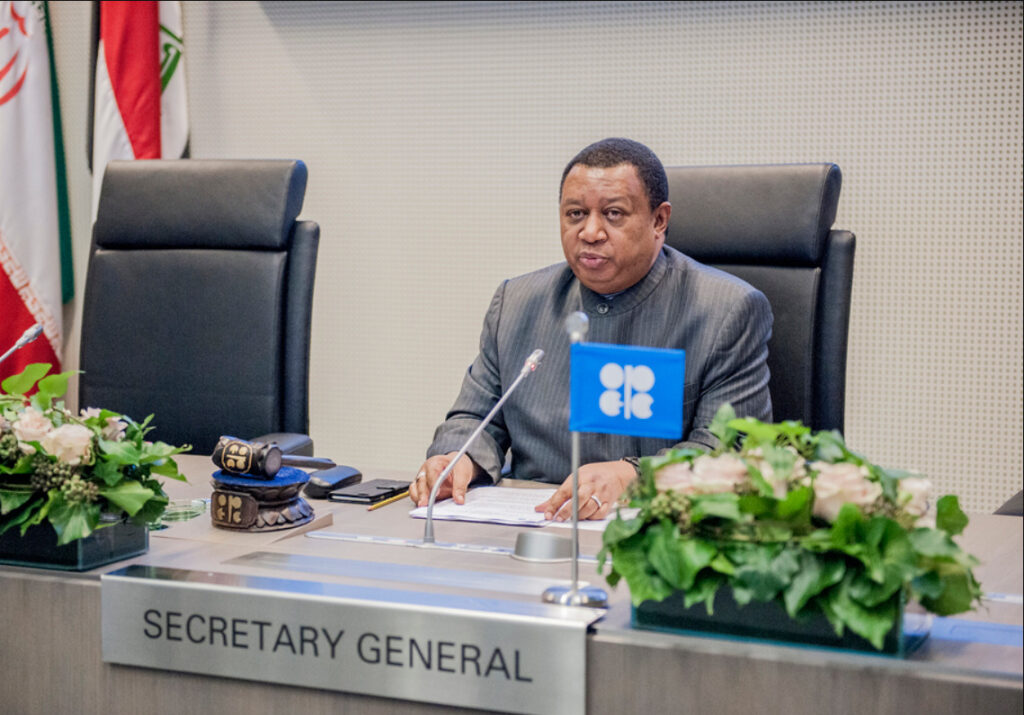Presented by His Excellency Haitham Al Ghais, Secretary General of OPEC, at the 3rd Libya Energy & Economic Summit 2025, themed ‘Libya’s Role as a Global Partner Providing Energy Security’, held on 18–19 January 2025 in Tripoli, Libya.

Excellencies, ladies and gentlemen,
It is a distinct honour to be here in Tripoli for the 3rd Libya Energy & Economic Summit. I was particularly inspired by the insightful opening address delivered earlier by His Excellency Abdulhamid Al-Dbeibeh, Prime Minister of Libya.
I extend my sincere appreciation to the Prime Minister and his government for their steadfast support of OPEC and their continued commitment to the Declaration of Cooperation between OPEC and non-OPEC producers a collaboration widely recognized as OPEC+.
We at OPEC look forward to strengthening our cooperation with Libya’s Head of Delegation, His Excellency Dr. Khalifa Rajab Abdulsadek, Minister of Oil and Gas, and his esteemed team.
I also wish to personally thank Minister Abdulsadek for the invitation to participate in this vital event, which serves as a key platform for Libya’s energy sector. I extend my best wishes to the organizers for a successful summit.
Excellencies
Libya has been an essential member of OPEC since joining in 1962, just two years after the Organization’s establishment. In 1971, the historic Tripoli Agreement marked a turning point in the oil industry and OPEC’s history, enabling Member Countries to gain greater sovereignty over their natural resources.
Today, despite facing ongoing challenges, Libya continues to play a vital role within OPEC and the broader global oil market.
Excellencies
The strength of OPEC and our OPEC+ partners lies in our unity and collective determination. This unity allows us to make decisions that uphold market stability a priority that benefits producers, consumers, and the global economy alike.
We saw this resolve in action at the onset of the COVID-19 pandemic, when decisive production adjustments by OPEC+ helped pull the industry back from a critical low point. These actions not only enabled the sector’s recovery but also had far-reaching positive effects across global economies.
This approach continues today through prudent, proactive, and pre-emptive decision-making. The OPEC+ meetings held late last year to extend production adjustment timelines reflect our enduring commitment to market stability.
While some may view OPEC+ decisions as short-term in nature, this is a misconception. Our outlook spans all timeframes we aim to ensure a foundation for future growth, future investment, and future oil production. I cannot emphasize enough the importance of this long-term vision.
Looking ahead, the primary drivers of global energy and oil demand growth will come from the developing world fueled by expanding populations, rising economies, growing middle classes, and accelerating urbanization.
By 2050, the global population is expected to rise from eight billion to nearly 9.7 billion. During that same period, the global economy is projected to more than double. By 2030 alone, an additional 500 million people are expected to move into urban areas, requiring the equivalent of building 420 cities the size of Tripoli.
We must also remember the millions worldwide who still lack access to basic modern energy services electricity, clean cooking fuels, and reliable transportation. These are essentials that should be accessible to all.
To meet this growing demand, massive investment across all energy sources is essential. For the oil sector alone, we estimate the need for $17.4 trillion in investment between now and 2050.
Libya is uniquely positioned to contribute to this energy future.
The country holds the largest crude oil reserves in Africa over 48 billion barrels, which accounts for 3% of the world’s proven reserves and more than 40% of Africa’s total. In addition to vast gas reserves, Libya also boasts strategic positioning along the Mediterranean, a skilled workforce, and, as demonstrated by this summit, a welcoming environment for investment and collaboration.
OPEC fully supports Libya’s expansion ambitions. It is also worth noting that half of OPEC’s Member Countries hail from the great continent of Africa. For Libya and all our African members access to investment is essential to unlocking their full energy potential and delivering the energy the world needs.
This summit also highlights the importance of a comprehensive approach to the energy transition one that embraces all energy sources and technologies, including renewables and innovations that address climate challenges.
This is a philosophy OPEC strongly supports. We believe the world will continue to require all forms of energy, and we must embrace every viable technology, all while recognizing the unique needs of different nations and peoples.
Investing adequately today and in the decades to come with realistic expectations about each energy source’s capabilities is essential if we are to reduce emissions while meeting rising demand.
This is at the heart of the Charter of Cooperation between OPEC and non-OPEC countries a framework in which Libya plays an active and valuable role. We look forward to working closely with Minister Abdulsadek and his team to advance this initiative in the years ahead.
In conclusion, I am confident that Libya stands ready to be a leader in oil and gas production, in renewable energy development, and in deploying technologies to improve efficiency and reduce emissions.
Libya has the resources. And as we’ve seen today, it certainly has the determination. We extend our best wishes to the Libyan government and its people as they shape a dynamic and prosperous energy future.
Thank you.
